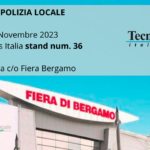
The recent clarification by the Revenue Agency (response to ruling 203 of 7 February 2023) once again brings the issue of Reverse Charge to the attention of users, in case of errata application of the reverse charge, in fact, the transferee/purchaser who is liable for the tax can correct the mistake made, i.e. the application of VAT to exempt, non-taxable or non-subject transactions.
How to behave in case of incorrect application of the Reverse Charge?
The solution, as specified by the Revenue Agency, is to make mere annotations accounting of opposite direction to those erroneously made and which is intended to be neutralised, this obviously in the event that it was not possible to exercise the right to deduct VAT.
If necessary, the law therefore expressly provides for the possibility of recovering the non-deducted VAT by recourse to the variation note, if the deadline is still met and, alternatively, by requesting a refund.
Therefore, the transferor or lender can cancel, modify or rectify by issuing a document of the opposite sign to the original invoice or credit note >, an invoiced and recorded transaction which subsequently ceases to exist, in which the taxable amount or the tax is reduced, or a clearly incorrect invoice.
The cancellation, rectification or modification will take place through the variation of the higher taxable amount and recovery in deduction of the debit VAT; the transferee or customer subject to VAT, in turn, will have the obligation to calculate the same amount between the VAT payable in order to counterbalance the deduction made at the time with reference to the invoice subject to change, thus transferring to the exchequer this amount.
It is also good to remember what exactly is meant by Reverse Charge.
The Reverse Charge rule, also known as reverse charge, provides for the shift of the tax obligations relating to the payment of VAT from the issuer of the invoice to the recipient; the latter, therefore, after having bought a product or benefited from a service, will therefore be obliged to integrate and pay VAT.
A practical example: a seller issues an invoice for the sale of a good or for the provision of a service, and also adds the due VAT to the price due (for example 22%); the customer, upon receipt of the invoice, will therefore pay the established amount plus the VAT applied while the seller will then take care of paying the VAT to the Revenue Agency.
In this way the VAT appears to be borne by the buyer but in reality it is the seller who takes care of paying it to the Revenue Agency.
The affected sectors are therefore:
- Construction
- Electronic products (sold in the distribution phase preceding the retail)
- Gold
- Scrap
- Gas – Energy (excluding LPG)
- Consortia (subject to EU authorisation)
What are the cases of application of the Reverse Charge? (art. 17, Presidential Decree n. 633/1972)
- Provision of services, including the provision of labour, rendered in the construction sector by subcontractors to companies carrying out the construction or renovation of buildings or to the main contractor or another subcontractor
- In the construction industry, reverse charge is mandatory for building cleaning, demolition, installation and completion services
- Sales of buildings or portions of buildings referred to in numbers 8-bis and 8-ter of the first paragraph of article 10 for which the transferor has expressly expressed the option for taxation in the related deed
- To the provision of services rendered by the consortium companies to the consortium to which they belong which has been awarded a contract with a public body to which the aforementioned consortium is required to issue an invoice
- Shipping of terminal equipment for the land-based public mobile radio service subject to the Government Concession Tax
- Microprocessors for computers and servers
- Scrap, waste and scrap of ferrous metals, etc
- Transfers of greenhouse gas emission allowances
- Transfers of other units that may be used by operators to comply with Directive 2003/87/EC and of gas and electricity certificates
- Sale of gas and electricity to a taxable reseller




